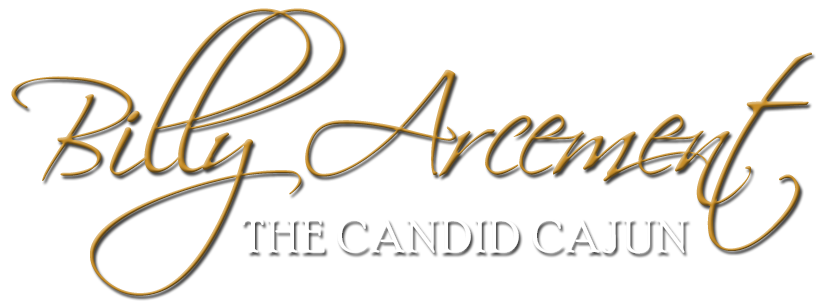Two Ingredients to Develop Employee Contributions
By Billy Arcement—The Candid Cajun
Copyright 2021
As a senior manager, one should never forget the constant need to help grow employee talents and skills. Stagnation is the enemy. If employee growth is stifled, there is the risk of diminishing individual skills to a non-competitive level. No manager worth their salt would allow falling behind the competition. Nor would they let employees not grow their ability to contribute.
What are the two options important for the future survival of an employee and organization? Mentoring and Coaching! These are the keys to develop your workforce. Each is a transfusion to enrich and enliven the lifeblood of your employees. Each requires a different approach to implement. Proper use of both strategies will propel your team to the top and enhance your competitiveness. I call it maxing out talents and skills. As one that has both coached and mentored clients in my consulting business, I’ve seen how valuable both can be for the organization and their employees. Let’s explore some differences between these important management responsibilities.
Mentoring: This involves partnering an experienced individual with someone with less experience. One mentors over a much longer period than coaching. Use it to grow potential replacements for corporate positions. This is a first-line supervisor responsibility as well as one important to the CEO.
Here are seven important approaches to use.
- If you are not willing to put in the time, don’t start. Mentoring requires a time commitment to get it done right. I once mentored a young potential supervisor for one year. My year of commitment, produced an outstanding supervisor. It was worth the mentoring time.
- Honest feedback is one of the single most important considerations. “Fake” messages, don’t serve anyone well. Challenge beliefs. Let truth prevail and you open the doors to a stronger growth experience. Mentoring is not for the timid!
- Look at the experience as a partnership, not dictatorship moments.
- Understand the skill level and learning ability present. Then, engage the individual based upon this information.
- Have a “specific game plan” to make improvement constant and consistent. Fuzzy doesn’t work to anyone’s benefit.
- A good mentor has insights that can notice some hidden talent within an employee. Keen observation skills can spot that “gem” buried in their abilities. Bring it out! Use it!
- Mentoring helps employees make a smoother transition into the workforce. It also tends to lessen the potential for future barriers to stifle career growth.
Coaching: As part of my first teaching position, I coached high school sports. Unlike mentoring, coaching is a more instantaneous action. I provided real time feedback on athletic performance. I was looking at specific skills present or lacking. It’s a shorter cycle. Here are seven approaches to a successful coaching moment.
- The coach must be very clear what skill execution gets a specific job done.
- A good coach needs strong communication skills. Employees need to understand your instructions to execute the correct steps. The sender is responsible to get understanding.
- A strong coach commits to helping an employee improve their performance. My current business focuses on improving leadership performance. As a coach, I must know which skills help make successful leadership possible. That’s what I look for.
- Coaches must be great assimilators of information they witness. This is an essential skill. A grip on reality is necessary before one is able to offer instructions on skill improvement. Connecting all the “facts” observed is the first step. Then use them to create the proper instructions.
- In a work setting, managers must know the precise level of performance of their employees. No guessing. Accurate assessments. If you want improvement, you begin to focus on a skill present and help move it to a higher performance level. A good carpenter knows how to build on the foundation present to create sound structure. A good manager does the same with skills and talents.
- When appropriate, a good coach can’t shy away from implementing discipline. A lack of effort and commitment to improve may warrant disciplinary action. Be courageous enough to use this if and when needed.
- Employees must trust their coach. It’s their job to look out for the employee. And, if a manager loses employee trust, their management successes vanish.
Managers should incorporate the use of mentoring and coaching techniques as part of their culture. A CEO encourages, by offering training to lower level managers, how to use these strategies. In today’s competitive atmosphere, a company cannot neglect developing talent. Make the investment of time and resources. My many years of working with leaders proved this to be the right approach. Neglecting to do so runs the risk of losing valuable employees and a quick ride to financial disaster.
Billy Arcement—The Candid Cajun, offers in-person and virtual leadership training and consulting services to his corporate, government, and education clients. Preview his website, www.SearchingForSuccess.com and Contact him at 225-572-2804
